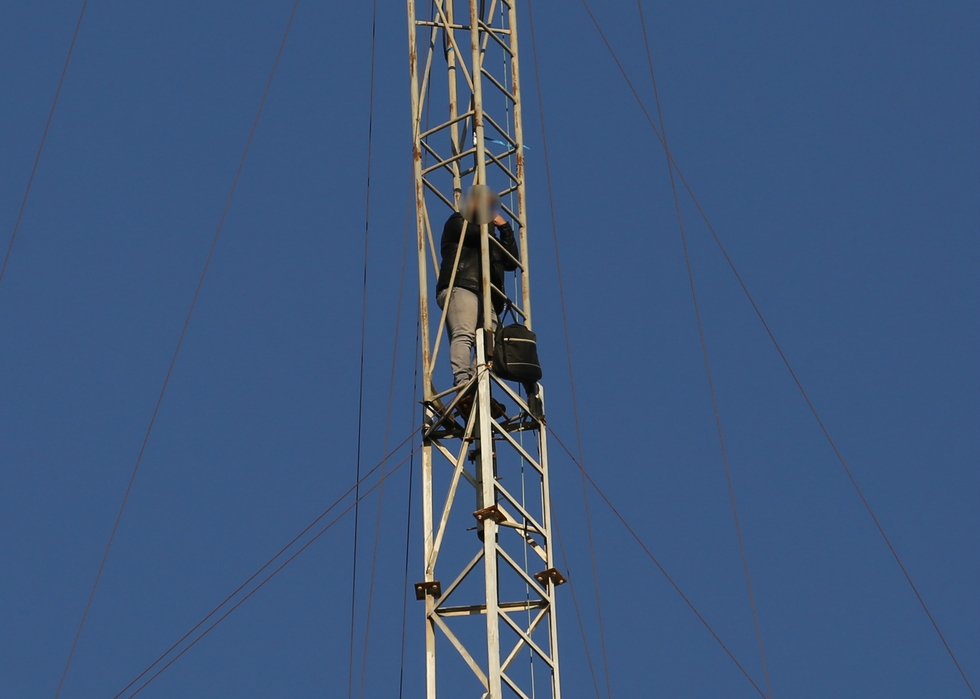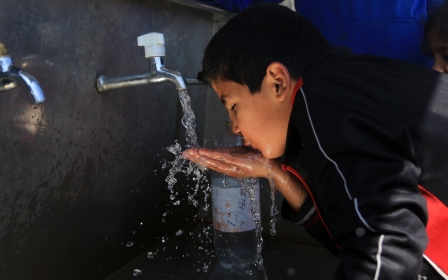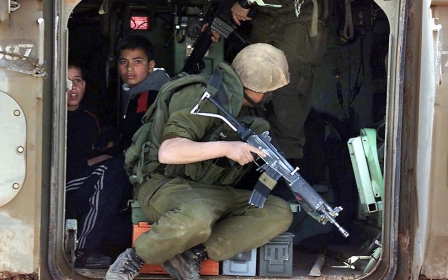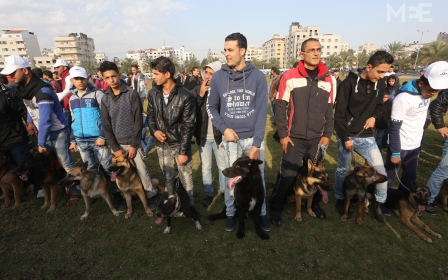'The smell of death hangs everywhere': Blockade drives Gazans to suicide

GAZA - It only took a small spark to extinguish the 43-year-old life of Mohammed Ghazal. Driven to the depths of despair, Ghazal doused himself in fuel and set himself on fire during a visit last week to Al-Aqsa Hospital in Dier al-Balah.
Ghazal, from the Nussirat refugee camp in the centre of the Gaza Strip, suffered with depression but had stopped attending appointments and receiving treatment for the condition in 2014, according to Gaza’s health ministry.
“He covered himself with a large amount of fuel and died almost immediately, in spite of efforts to save him,” it said in a statement about Ghazal’s death.
The case is just one among many in recent months, with doctors and officials linking an increase in suicides to the desperate conditions and lack of opportunities endured by many people in Gaza as a result of the decade-long blockade by Israel and Egypt.
In the first quarter of 2016, at least 95 people tried to kill themselves, according to unpublished research by the Euro-Med Observers for Human Rights monitoring group, while suicide rates in the first months of 2016 increased by 30 percent compared with the same months between 2013 and 2014.
“The last war on Gaza led to a total collapse of the Palestinian economy, and unemployment is one of the main reasons behind most suicidal cases,” Ramy Abdu, the director of Euro-Med, told Middle East Eye.
Many cases of suicide are not acknowledged in public because the subject is still considered a taboo in a society where men are expected to provide for their family, dealing with life’s problems without complaining or asking for help.
Yet the pressures of the blockade have made it an impossible task for most people to meet those expectations.
Currently 80 percent of the population of Gaza live below the poverty line, while youth unemployment stands at 44 percent.
“I have lived my life, and my wish is to end it. Now, I am going to end it and that’s my last hope,” wrote Younis Briem, a 32-year-old man from Khan Younis in the southern Gaza Strip, on his Facebook page on 9 February.
Briem's status update gained 30 "likes". Fifty minutes after posting it, Briem set himself on fire in the street in Bani Suhaila, near the entrance to eastern Khan Younis.
Some nearby taxi drivers tried in vain to extinguish the flames but Briem died of 70 percent burns before anyone could reach him with containers of water.
Abu Mohammed al-Briem, Younis’s cousin, said it was not the first time he had spoken of suicide.
'He could not afford a dignified life'
“He never suffered from any psychological disorders, as people have been saying - he was always under heavy social and economic pressures, and as a father of two children, he could not afford to secure a dignified life for them. For these reasons, he committed suicide,” he told Middle East Eye.
Sources close to Ghazal’s family claim that he too faced economic worries and alleged that the hospital had refused to return his ID document until he settled a bill for 500 NIS ($132), which he could not afford to repay. The hospital did not comment on the allegation.
Other recent cases of people attempting to kill themselves because of economic circumstances have also been reported.
At Al-Shifa hospital, a crowd was reported to have stopped a man, who complained that he could no longer afford to live, from cutting his veins with a knife.
Another suicide was avoided when a father threatened to throw himself from a rooftop on the same day that his wife had given birth to their seventh child.
According to reports, the man complained that he could not afford to pay for his wife’s hospital bills after the Palestinian Authority had cut his salary.
Police and neighbours managed to talk him down, but only following assurances from the office of Palestinian President Mahmoud Abbas that his salary would be reinstated.
Gaza officials refused to provide official statistics to MEE about the number of suicides in Gaza, but Yahya Moussa, a member of Palestinian Legislative Council, told MEE that a “high increase” in suicides had occurred since the blockade began in 2006.
Fadel Abu Hein, a Gaza-based professor of psychology at Al-Aqsa University, told MEE that some of those who had committed suicide had written messages explicitly blaming the blockade, with one man writing: “Open the future up for us, or else we are going to end [our lives] with our own hands.”
“Unemployment and poverty are the two important pillars which make humans lose sight of the importance of their existence,” he said.
“Youths suffering from depression, frustration and despair, who feel that their life is not giving them anything, can easily convince themselves that ending it is easier than being totally controlled by others.”
Richard Falk, a former UN special rapporteur on Palestinian human rights, told MEE that the increase in suicides in Gaza were indicative of the “deep despair” endured by many in their daily lives.
“I have long admired and been inspired by the spiritual resilience of the people in Gaza in the face of the prolonged ordeal imposed by Israel's policies of occupation, blockade, and use of excessive force,” Falk said.
“This will to live as well as possible under the most difficult of circumstances seems endangered by this alarming rise in suicides, which seems to express deep despair, a loss of any hope in the future, a condition of total demoralisation.”
'Oppression is haram too'
While there is sympathy for the families of those who succeed in killing themselves, the majority of the population prefers to remain silent because suicide is generally considered to be forbidden in Islam.
“Committing suicide is haram, but oppression is haram too,” Imad Hamattou, a Gaza-based scholar, told MEE.
“Behind every suicidal case there is a human story, the smell of death hangs over everything in Gaza. The problem is that an average person can’t manage his daily life.”
Suicide is also banned under Palestinian law, with those who attempt and survive often taken to prison, adding further to their despair.
In a recent court case in Rafah attended by MEE, a young man was jailed for a month for attempting to kill himself, with the judge justifying the sentence as “an attempt to protect his life”.
“Even if you put me in prison, I will attempt suicide again the moment I am out of jail!” the man shouted at the judge. “This is my body and not your body. It is my life I want to end, not yours!”
Mohammed Rashwan, a lawyer and human rights activist at the same court, told MEE that cases of attempted suicide were being brought before the courts on an almost daily basis.
“It exhausts my mind to think about all these cases, and I am not exaggerating when I say that suicide has become a phenomenon in Gaza,” he told MEE.
“It is not enough to criminalise suicide attempts. There has been a massive explosion of frustration among young people. All they need is 5 NIS to buy a litre of fuel to burn their tired bodies and troubled minds.
“They have lost hope, they have lost perspective, borders are closed and they feel trapped, unable to find jobs or continue their academic studies.”
In January Younis Briem had posted photographs on his Facebook page of children who had been homeless since Israel’s war on Gaza in 2014, as well as images showing how recent heavy flooding had devastated the neighbourhood.
“I feel choked… and nobody is feeling me,” he wrote. Nine days later he was dead.
Middle East Eye propose une couverture et une analyse indépendantes et incomparables du Moyen-Orient, de l’Afrique du Nord et d’autres régions du monde. Pour en savoir plus sur la reprise de ce contenu et les frais qui s’appliquent, veuillez remplir ce formulaire [en anglais]. Pour en savoir plus sur MEE, cliquez ici [en anglais].




